Featured Culture
5-Step Guide to Healthy Ramadan Weight Loss
Published
By
Dr. O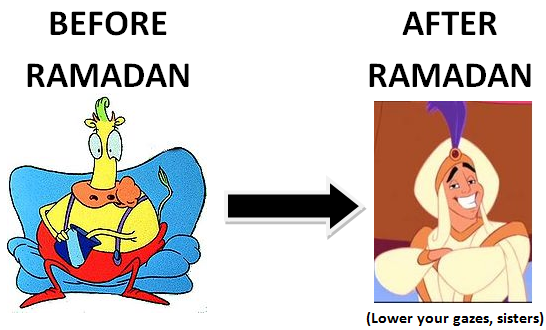
Dr. O blogs at Muslim Medicine, a site that strives to serve only the freshest grade-A certified ẓabiḥah ḥalāl comedy. Contact your local ḥalāl butcher for more details.
Keep supporting MuslimMatters for the sake of Allah
Alhamdulillah, we're at over 850 supporters. Help us get to 900 supporters this month. All it takes is a small gift from a reader like you to keep us going, for just $2 / month.
The Prophet (SAW) has taught us the best of deeds are those that done consistently, even if they are small. Click here to support MuslimMatters with a monthly donation of $2 per month. Set it and collect blessings from Allah (swt) for the khayr you're supporting without thinking about it.
HEY. HEY YOU. YEAH, YOU. STOP DAYDREAMING ABOUT EATING AND PAY ATTENTION.
My dear brothers and sisters, Ramadan is finally here! That special time of the year where our divinely-ordained worship blossoms into a beautiful month of passionate devotion, rigorous spiritual purification, profound remembrance, deep self-reflection, unshakable inner tranquility, and selfless compassion.
Ramadan is a truly blessed time that gives us a much-needed opportunity to rediscover the immaculate wisdom of the Qur’an, to rekindle our relationship with our faith, and to edge ourselves closer to He who fashioned us from clay and dirt, and to partake in vitriolic fighting in our communities over sighting the moon while subsequently declaring others who don’t follow our sighting as deviant. Ahh, the inspirational beauty of how we Muslims respectfully treat the entry of Ramadan into our lives.
Anyways, one of the things that make Ramadan truly stand out amongst all the other Islamic months is its mandate of ṣawm, or fasting. It’s a built-in rigorous daily spiritual weight-loss program that trims the unsightly chunks of fat off of your īmān, and gives you a sizzling hot spiritual form that just might make some of the angels blush (okay, probably not – but wouldn’t that feel pretty awesome?).
Think of Ramadan as the intense P90X workout routine for your īmān – in just 30 days your īmān will have abs of steel and pecs so tough that it’ll make Shayṭān feel like a fat little chubby kid trying to tempt you when he finally pays his bail and gets let out of jail on probation after ‘Īd al-Fiṭr. But that’s ONLY if you’re willing to go the extra mile and give your īmān that workout that it so desperately needs this month!
What your īmān SHOULD feel like after Ramadan ends (without tattoos, of course)
Now, spiritual trimming is wonderful and all, but we know why you’re really here. Just admit it: you’ve been letting yourself go this past year, haven’t you? Sneaking in guilty pleasures every now and then like whole family-size bags of M&Ms, weekly orders of super-sized fish filet meals at McDonald’s, and massive bowls of the heaviest chicken masala curry drowned in buckets of oil and grease. All those fattening foods have taken their toll on your weight since last Ramadan, and now you’re probably gearing up for a grand feast every night after ifṭār as a reward for your fasting, huh? Well, shame on you!
McDonalds – where the only thing heavier than your belly is your guilt of eating regularly here.
Despite the fact that we fast in Ramadan, we like to convince ourselves that we’re actually losing weight, but according to clinical obesity research that I myself have completely made up, this is clearly a huge misconception. You might want to ask your kabob roll to leave the room, and tell your Philly cheese-steak to cover its eyes. The information below is not for the weak of heart. Well actually it kind of is, since cardiovascular disease is a side effect of – okay you get the point.
That’s right. Kilotons. Does this chart make any sense when you actually think about it? Probably not. But did it make you feel self-conscious? I hope so. We’ve just been fooling ourselves into thinking that fasting would help trim that stubborn chubby belly fat and get us back on the fast-track to getting married (or if you’re already married, getting you back to having your spouse NOT lower their gaze at you out of eye-strain).
You’re probably thinking: “Well fine, you’ve made your case that Ramadan isn’t exactly the automatic weight-loss dream-month that most Muslims convince themselves that it is. So what’s the solution, then? How do I banish my stubborn unsightly fat to the depths of obscurity like Shayṭān gets banished every Ramadan?” Fortunately for you, my friends, MuslimMatters is here to help. This is our 5-step guide to Healthy Ramadan Weight Loss!
1 STOP SPEED-EATING AT SUḤŪR
Yeah, yeah, we’ve all heard that familiar excuse: it’s nearly 3 minutes to fajr, you just woke up and rolled out of bed, and you gotta quickly grab something before time’s up and you’re left hungry and grumpy. So you rip open the kitchen cabinets and stuff yourself full of as many chips and cookies you can lay your hands on, then down a giant glass of milk at Guinness world-record speeds all before the game timer reaches zero and the referee blows the whistle and begins the adhān. What’s worse than that are the folks who have plenty of time before fajr, but somehow are still frantically gorging like there’s no tomorrow. You’re chewing furiously all to beat the clock, and to anyone looking at you, it just ‘aint a pretty sight.
Take it easy there, buddy. Suḥūr isn’t an eating contest – it’s meant to give you a small energy kick to start your day off, but after you quickly expend that energy, you’re on your own for the remainder of the fast. Stuffing yourself with more food doesn’t necessarily mean you’ll get more energy, so don’t fool yourself into thinking a 7-course gourmet suḥūr meal will carry you all the way to ifṭār.
Take it easy, relax, moderate your intake, and eat just enough to give you strength for a small kick in the morning to get you started on your day, and leave it at that. Trust me on this, your body is an amazingly intricate biochemical machine. During a fasting state when your fuel starts to run on empty, your body begins producing hormones which naturally target your fat and energy stores and begin slowly burning them throughout the day to keep you on your feet. Allāh 
2 DON’T OBSESS ABOUT FOOD
Let’s do a little psychology experiment. I’m going to put a word here, and you tell me the first thing that comes to your mind as soon as you read it. Are you ready?
Chicken.
I’m almost 99% confident I know EXACTLY what you thought about once you read that word. You were thinking about lamb gyros. Don’t even try to deny it – you had food on your mind. It’s all psychology, and your mind follows that basic impulse just like everyone else’s. I’m willing to bet that if I wrote “marriage dinner” as the phrase, the brothers would immediately think about their fantasy future wife’s heavenly cooking, and sisters would immediately conjure up warm thoughts of all the romantic candle-light restaurants their future husbands probably won’t take them to out of lazy stinginess. The point is, you’re too preoccupied with food during Ramadan, and that’s got to stop.
While fasting, you can’t lose yourself in your day-dreams about the magnificent ifṭār feast waiting for you at maghrib time and drooling over the guessing games you play over what kind of delicious dinner awaits you every night. Obsessing over food while you’re fasting is unhealthy and creepy, and points to a deeper dependence on food that you need to break.
Turn off the food channel, stop hanging around the kitchen staring at the fridge, and stop talking about food in general. Focus your time and efforts on worship and remembrance, and make every effort you can to expel all subconscious thoughts of food and drinks. It’s tough to break dependance on snacks and meals, I know, but in the end, your tummy and your brain will thank you for it once Ramadan is over. Weight loss is just as much a battle of your mind as it is your body. Train both this Ramadan to give yourself the best edge over fighting your fat.
3 EXERCISE (DUH)
Okay yeah, I know what you’re thinking. “Exercising to lose weight?! Gee, thanks for the tip, Captain Obvious.” Well you know what, sometimes the most obvious solution is the one most overlooked or brushed off. So you’re welcome, Lieutenant Sarcasm. The fact that we’re fasting is the single biggest excuse that Muslims always come up with during Ramadan to justify their vegetable lifestyle during this month. Even potatoes get to see more movement than we do during Ramadan since they’re skinned, cut up, and cooked almost every night. This is not a month of laziness, so DON’T USE FASTING AS AN EXCUSE FOR YOUR LAZINESS!
Yes, we’re in a weakened state with low energy reserves while fasting, so it’s understandable that for older folks, exercising might be dangerous. But for you younger able people, I’m not asking you to do Olympic weightlifting but to be active so you can speed up your body’s fat burning. Like I mentioned before, in a fasting state, your body starts to mobilize your fat and begins burning it to power you. If you lay around all day and just nap and rest, your body won’t need to burn much fat at all to keep you active, so your stubborn belly fat isn’t going to magically disappear just because you’ve stopped eating for part of the day.
If you’re young and able-bodied this Ramadan, start building habits of taking the stairs instead of the elevator, lightly walking to places instead of driving for 5 minutes, and opt to help with heavy work around the house instead of napping all day. Starting up a light, simple, and consistently active routine during Ramadan serves as an excellent means of really shaving off that excess weight and shaping you up quite nicely to force a lot of gaze-lowering once ‘Īd al-Fiṭr rolls around.
4 STOP FEASTING AT IFṬĀR
Of all the Ramadan enemies that cause your weight-gain, this here is the biggest culprit. We’re all guilty of doing this at one point or another during Ramadan – yes, even you, uncle in self-denial with the dried masala stains on your shalwar and the old grains of biryani from 3 Ramadans ago still imprisoned in your beard. Fasting all day makes even the smallest of ifṭār morsels taste like the most wonderful food in the world, and your appetite at break time is so voracious that you’re probably ready to inhale the entire dinner table. That’s why we tend to consider ifṭār and the subsequent dinner to be a rewarding entitlement for us that wipes away the guilt of other people seeing us using construction vehicles to pile on mountains of food onto our plates after we break our fasts.
Yup. Your Ramadan seems to be going great.
For the sake of your health and your weight, you need to stop that. The point of ifṭār and the subsequent dinner is to sustain yourself and replenish your strength and energy after a long day’s fast. It’s not meant for you to consume the entire combined food volume of breakfast, lunch, brunch, afternoon snacks, and dinner all at once in one sitting. What was the entire point of you fasting if you’re just going to shamelessly reward yourself at night with a MASSIVE meal fit for Jabba the Hut?
Just like the rule of thumb we established earlier with suḥūr, at ifṭār, eat just enough to stop your hunger pangs, and always moderate your intake and choose healthy meals rich in nutritious value. Lay off candy, junk food, and heavy meals high in fat and calories. If you’re serious about losing weight during Ramadan, then you need to get serious about how much you allow yourself to eat at nighttime. We’re Muslims for crying out loud, not Sumo Wrestlers. Take a lesson from Prophet Muhammad 
5 BE MINDFUL OF OTHERS
One of the most oft-forgotten aspects of Ramadan is its strong focus on charity and providing means of support for those less fortunate than you. We tend to limit this solely to monetary forms of charity, which detracts focus from an equally important goal for this month: feeding those less fortunate than us. Our money goes a long way, alḥamdulillāh, and it’s wonderful that this month opens our hearts and our wallets as well, but it’s rare that fasting Muslims reach out to soup kitchens, homeless shelters, and orphanages that are all around us. Not to mention parts of our own ummah which are suffering severely from drought, famine, war, and natural disasters. Giving your money for these causes is excellent, but disingenuous when you’re throwing away entire plates and trays of leftover uneaten food every night while other Muslims are clearly starving to death.
Want to know the most sure-fire way of losing weight this Ramadan? Treat each morsel of food that you’ve been blessed with every night as the most precious commodity you can ask for. Picture that lavish plate of delicious gourmet goodness sitting in the lap of a starving Somalian girl, or in the hands of a grief-stricken refugee mother of a hungry newborn, and I promise you that you’ll treat your food with a far deeper level of appreciation than ever before, and you’ll certainly think twice before greedily jumping for 2nd, 3rd, and 4th helpings. That crushing guilt becomes even more compounded when you’re approaching the garbage can with a half-eaten plate of food with overestimated portions that you yourself slapped on in the hopes that you’d mindlessly devour it.
Ramadan is the month of remembrance, so remember your starving brothers and sisters abroad and make an effort to not just throw money at the problem and feel good about yourself, but also make sincere du‘ā’ that Allāh 

And there you have it, folks! Be sure to follow this guide for the remainder of this blessed month and inshā’Allāh you’ll see striking results in no time!
Keep supporting MuslimMatters for the sake of Allah
Alhamdulillah, we're at over 850 supporters. Help us get to 900 supporters this month. All it takes is a small gift from a reader like you to keep us going, for just $2 / month.
The Prophet (SAW) has taught us the best of deeds are those that done consistently, even if they are small. Click here to support MuslimMatters with a monthly donation of $2 per month. Set it and collect blessings from Allah (swt) for the khayr you're supporting without thinking about it.
Hailing from New York, Dr. O is a current medical student who blatantly misappropriates his study time by posting absurd articles lampooning the weird things he often notices within the Muslim community. His articles often contain unhealthy doses of odd wit and humor, sprinkled with overly-pretentious medical-jargon, but covered in a sweet milk-chocolate coating of small sincere life lessons. Despite not actually having a medical license and pretending to impersonate an actual physician online, Dr. O aims to heal patients with just a tiny bit of bitter advice contained within a sugary pill of light-hearted laughter. He hosts his own blog, Muslim Medicine, at http://www.muslimmedicine.net.


Nationalism And Its Kurdish Discontents [Part I of II]: Kurds In An Ottoman Dusk

Moonshot [Part 10] – The Marco Polo

Moonshot [Part 9] – A Religion For Real Life

Genocidal Israel Escalates With Assault On Iran

Relief Convoys To Gaza Expose Discrepancy Between Society And State

Moonshot [Part 9] – A Religion For Real Life

Moonshot [Part 10] – The Marco Polo

Moonshot [Part 8] – The Namer’s House

Moonshot [Part 7] – The Abyss Stares Back

Moonshot [Part 6] – Down These Mean Streets

[Dhul Hijjah Series] Calling Upon the Divine: The Art of Du’a (Part 1)

IOK Ramadan 2025: Four Steps | Sh Zaid Khan

IOK Ramadan 2025: Do Your Best | Sh Zaid Khan

IOK Ramadan 2025: Giving Preference to Others | Sh Zaid Khan


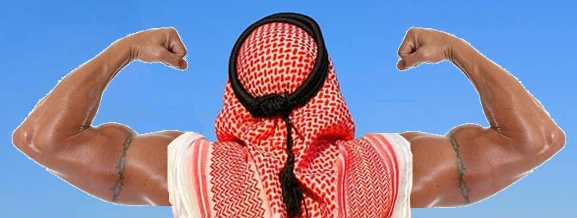
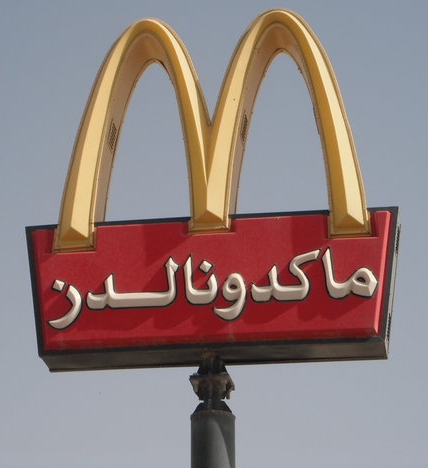
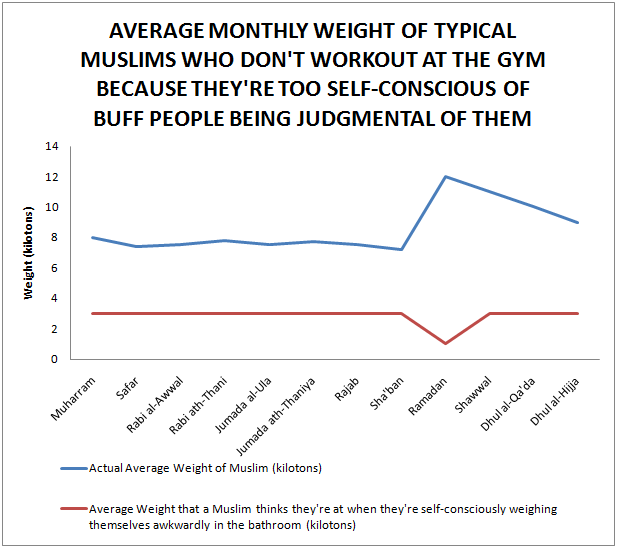
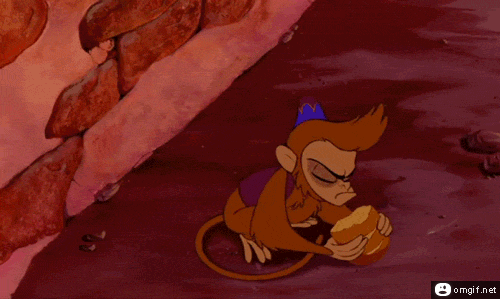
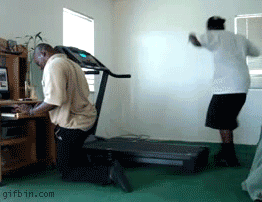
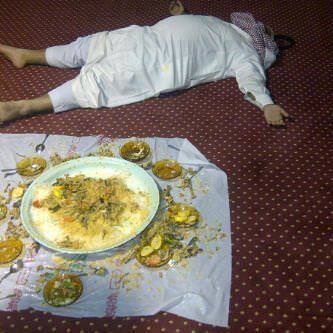





Pingback: 5-Step Guide to Healthy Ramadan Weight Loss – MuslimMatters.org | Weight Loss Program Broward
DuhaSweet
May 25, 2015 at 10:24 AM
Even though it is May 2015, Ramadan is in a month and I look forward to using these techniques InshaAllah!
Wonderful funny article!
MuslimTeen
July 25, 2012 at 11:17 AM
This was a great article :) The humor of it really makes the article much more enjoyable to read. I will definitely use these methods and practices in Ramadan. I love the graphics :) Ramadan Mubarak! :)
samar
July 25, 2012 at 11:49 AM
Really beneficial and hilarious too Jazakallah khair for.the excellent reminders
Aly Balagamwala | DiscoMaulvi
July 25, 2012 at 3:00 PM
Dr O, that was hilarious but great advice!!!
Pingback: 5-Step Guide to Healthy Ramadan Weight Loss | Strong Daddy
Pingback: 5-Step Guide to Healthy Ramadan Weight Loss – MuslimMatters.org at weight loss
Tarannum Ansari
July 25, 2012 at 10:15 PM
That was one of the funniest articles I have read! I will surely be looking out for more. All masjids should post it on their websites during ramadan.
Cookie
July 26, 2012 at 12:43 PM
Very good article!! :) I started doing a couple of the above mentioned things myself this very Ramadan, focusing specially on incorporating exercise in my daily routine, taking the stairs and keeping myself distracted by some work at all times. It has worked wonders mashAllah. I’ve become more productive alhamdolillah and feel less dependent on both food and water – despite being a complete foodie throughout the year. And I have to say it is very liberating because it helps one concentrate more on the important tasks at hand… which we usually forget or neglect when lost in thought of food!
It’s a different kind of freedom altogether and makes acts of worship more easy to do as well, particularly the post-iftari rukus and sujuds, which can be quite difficult to perform with an overly stuffed stomach!! :)
The article is very helpful. Love it! And the pictures make it ever the more entertaining to read!
*lol at lower your gazes*
hajara
August 1, 2012 at 6:17 PM
Wonderful article Masha Allah. Helpful funny, thoughtful and informative! Jazakallah khair…
kanzali
August 3, 2012 at 2:16 PM
interesting information done great work
Pingback: 5-Step Guide to Healthy Ramadan Weight Loss | Extreme Weightloss Methods 1
mariyam
August 11, 2012 at 7:14 PM
i really appreciate the helpful advice Jazakullah khair. Not to mention the halaroius graphics! They made my day:D
Pingback: Lastest Fasting For Weight Loss News
Said
June 26, 2013 at 4:06 PM
Thanks brother for the article. Allah will help us all throughout this great month. I wish everybody RAMADAN KARIM.
Pingback: Anxiety & Panic Relief Information
afroz
July 6, 2013 at 1:53 PM
Very good Article, Mashallah keep it up..
Anitha
July 9, 2013 at 2:47 AM
very useful message to us. Thank you.
Ayesha
July 11, 2013 at 12:10 PM
thanks.. a really nice article it is,quite well written and informative !
Fairouz
July 12, 2013 at 12:11 PM
Hahahahaha I love the last picture especially because my 8 month old sons name is Aladdin (A) Lower your gazes baby sisters!!1
sdfsdf
July 19, 2013 at 1:29 PM
long-winded answer
Pingback: Healthy Eating in Ramadan | Musings of a Mohajababes Girl - Kaftans & Accessories for Every Occasion
Salma
June 26, 2014 at 4:56 AM
Excellent read, good humour and a great reminder. Thank you. God Bless
sarah
July 1, 2014 at 5:33 AM
Haha…. really funny but most informative as well. Ramadan Kareem
Miss HaychEm
July 2, 2014 at 12:47 AM
Excellent steps, I’m laughing as I’m typing, the sarcasm and images were on point.
Muhammad Akhtar Raza
July 4, 2014 at 1:36 AM
Excellent topic providing attention that we are not meant for eating.
Azwany
June 17, 2015 at 4:12 AM
A hilarious good advice. you make loosing weight seems lot easier. As I always believe, Islam way of life is the ultimate healthy lifestyle!
In shaa Allah will try this tips starting tomorrow 1st Ramadan
Anon
June 17, 2015 at 12:24 PM
Good article…but not useful to me.
I already have incorporated these things during ramaddhan (actually probably since I started fasting)
The issue I have is I want to lose weight…my metabolism is quite bad (i think), but I need a routine to help me do intense/gym exercises. Timing is a huge issue…we start at 2:30 and end at 9:30
when can I actually do heavy exercise so that I can lose weight? (also gym is out of question as it is not nearby, I do not drive, and parents would probably say no anyway to going out at night)
Abdur Rahman
December 3, 2015 at 2:25 AM
Nice article,
undoubtedly we can reduce our weight in ramazan kareem but we don’t try to get benefit from,”Ramadan ”
When we make schedule, we will eat in “Sehri” too much because we don’t feel appetite in a days but fast (roza) does not required this, When “Iftar” comes we also take meal too much..When this routine we adapt how can we loss weight..Therefore should take feasible diet Appropriate and Healthy Diet.
kang cepot 46
June 6, 2016 at 12:11 PM
marhaban ya ramadhan
http://www.situsobatherbal.com/
http://www.situsobatherbal.com/2016/05/06/obat-herbal-eksim-di-selangkangan/
Mahvash
June 9, 2016 at 1:38 AM
Enjoyable read Dr O!!! Loved the graphics and the humour :)
umm nabila
June 12, 2016 at 8:15 AM
MashaAllah, thanks for the dhikr
kang ibing
June 30, 2016 at 8:19 AM
Happy Eid al-Fitr